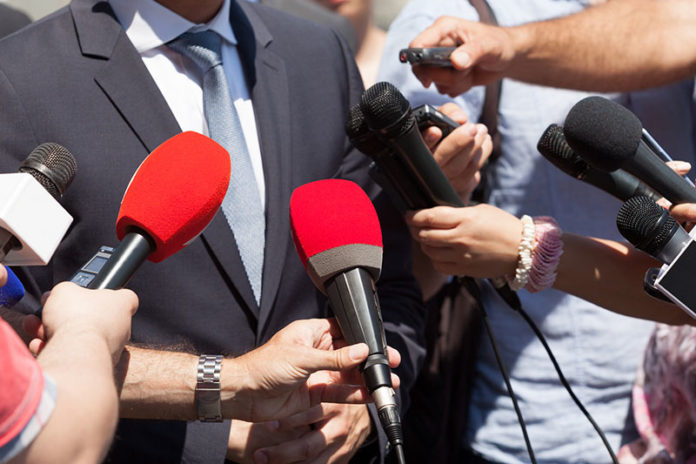In a world not that long ago, a newspaper’s “Editor’s Note” was used primarily to address minor, factual errors; mistakes like a wrong date or misspelling of a name. Today, however, it increasingly appears to be the only place where actual journalism is transacted; albeit, only after the original article has been published.
“Report, thenverify” should be the new masthead motto for The New York Times and other news outlets that have lost all semblance of balance and professionalism.
This phenomenon is especially prominent in articles about President Trump and his administration. A “blockbuster” scoop about the president, or Republicans in general, seems to be followed shortly by an editor’s note clarifying the “facts” of the story; and, in many cases, repudiating it altogether.
Recall the infamous BuzzFeed article from January, reporting what would have been a devastating blow to Trump, but which was quickly debunked by Robert Mueller himself. And, this week, we see the Times going once again after Supreme Court Justice Brett Kavanaugh on alleged past sexual misconduct, only to have the crux of the article dunked by a follow-up editor’s note detailing the accuser has no memory of – wait for it – the accusations on which the hit piece is based.
Editors blame weak fact checks in the rush to publish first in today’s 24/7 news cycle, but the Mainstream Media’s abhorrent treatment of Supreme Court Justice Brett Kavanaugh made clear the much more disturbing truth; that when it comes to weaponizing bylines against political enemies, facts are irrelevant when the damage of accusations alone will serve nicely.
To cover themselves and their precious “ethics” in this repulsive practice, the Mainstream Media has invented a new term — “credibly accused” — which allows them to go to print with mere allegations rather than take the extra step of substantiating the claims. These New Age Journalists understand that in today’s outrage culture, an accusation is all it takes to get someone or something “canceled,” especially if such an accusation is deemed “credible.” And if the accusations eventually fall apart? No worries. They were just reporting that the target was accused, not that he or she was “guilty”; a distinction without a difference to the target of the article.
This, of course, is entirely the point of “credibly accused.” In spite of the surface gravitas of the phrase, there is no objective standard to what is considered a “credible” accusation. It has no meaning other than that a journalist decides to label it “credible.” Individuals who then read, hear or view it in various media forms, tend to believe it to be true because, after all, it wasprinted in a newspaper.
In the past, such circular reporting would have been bounced by editors who still maintained some shred of integrity. Today, however, as in the case of this week’s New York Times Kavanaugh hit piece, such articles appear once and then grow generically from news to opinion sections, and thence into the limitless world of social media.
Does the reader know the difference? Most times, no; especially when the initial reporting is further fueled by “credible” political figures who themselves run with the story before they determine its veracity. Back in the newspaper’s headquarters, there is no worry because, once again, the editors and the reporters have created for themselves plausible deniability. They are journalistic cowards who have no care whatsoever for the damage they do to the targets of their faulty reporting; in fact, they likely revel in it.
Did a retraction help restore the life and reputation of the Covington Catholic School kids skewered in the media for racism, when it turned out that they were the victims? And what about Kavanaugh, who once again is dragged through the mud over “credible” accusations that cannot be recalled even by the supposed accuser? The public by and large will remember only the headline, not the small footnote added days after the original piece with the faux apology.
For these New Age Journalists, who boast openly that they have a duty and obligation to use their bylines against those who they deem to be dangerous, facts have become irrelevant. It is the cause that matters. After all, in their minds’ eye, they are saving the world, and if there is collateral damage to other individuals along the way, that is to them a small price to pay.






























